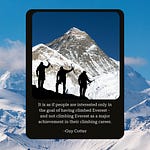I just had an incredible conversation with Dave Asprey on his show The Human Upgrade Podcast where we discussed my new book The Psychology of Leadership.
Dave is the founder of Bulletproof Coffee and a 4x NY Times Best Selling Author. His podcast has over 350 million downloads. In this episode, we explored why stress isn’t the enemy of success.
It was a fantastic conversation. We discussed how the world’s top leaders, athletes, and innovators reframe and use stress to amplify focus, drive, and resilience.
We discussed:
the psychology of stress and why zero stress is a myth;
how procrastination can boost creative performance;
the stress-performance curve no one taught you in school; and
why losing is the real path to mastery.
Here’s the first part of our conversation. Be sure to subscribe for the next one.
The following transcript has been edited and trimmed. Also, all references to “stress” should be interpreted in a broader context that includes reframing stress as “activation.”
Watch the entire interview with Dave here.
Stress and Performance
Dave Asprey: How do you handle the mental burden or stress of your job in the high-pressure industry of money management?
Sébastien Page: While writing this book, the biggest finding for me was that optimal performance does not happen at zero stress. When I started researching psychology and writing the book, I was beating myself up for being stressed. I started talking to a sports psychologist named Dr. Daniel Zimet. He looked at me and he said, “You know, stress can increase performance.” Then he introduced me to the concept of the Yerkes–Dodson Curves. Essentially, at zero stress, you're not at the optimal performance point, and as stress increases, your ability to perform increases, up to an optimal point. Those curves are different depending on the task. So, if you're trying to do research, to innovate, to write computer code, your optimal performance point on that stress curve is closer to a low stress level. If you're power lifting, or you're running 100-meter sprint, there's almost no level of activation where your performance will start to decrease.
DA: How would I know if I need more or less stress for a task?
SP: First, you have to stop beating yourself up about being stressed. Tim Ferriss wrote — and I love this — that “embracing stress is like a superpower.” That's the first thing. Now, take Neil Armstrong. We all want to be like him. Let's go back to the moon landing in 1969.
Neil Armstrong, Buzz Aldrin, they're in the lunar module.
Everything goes wrong.
They lose connection.
The computer stops working.
They run out of fuel.
The module goes off course.
This is a critical moment in human history, and Armstrong takes control and manually lands the thing in a spot that wasn't planned for, but he lands it, and then everybody knows what happened next. He said, “That's one small step for a man, one giant leap for mankind.” Here's the thing that might be interesting for biohackers. He was hooked to a heart rate monitor. Can you guess is average heart rate for that mission while all of this was going on?
It was 75. It's like a resting heart rate for most people. And it actually spiked when he landed.
There are ways you can improve your stress tolerance and be more like Armstrong. You talk about this on your show, but repetition, repetition, repetition. Even mental repetition is extremely important. If you're going to do something that’s maybe a little stressful, like go on the Dave Asprey show, you might spend some time in the hours before doing a few mental reps of what you're going to say.
DA: This isn’t really stressful for you, is it?
SP: No, I’ve been having fun so far.
DA: I mean, you’ve been on CNBC doing high-pressure two-minute interviews...
SP: I’ve gotta say, I love the podcast format. We can have conversation. If I go on live national TV, it's two to five minutes, and it's about the debate of ideas. It's high pressure. It's not the same.
On the Importance of Loss
DA: I noticed you brought a notepad. What's on your notepad? What kind of notes do you take?
SP: This is a security blanket. For a lot of these media engagements, I hold it, but I never look at it. And in my defense, you have one too.
There are things that are not as intuitive that I want to talk about. Instead of just giving you an answer about the research, I want to give you an answer that has a story behind it, and sometimes I tend to forget.
For example, under sports psychology, I have this idea that sports psychology applies to money management. I have a note that says “Federer.”
To improve resilience, we must learn to lose. You lose in sports, and you lose in money management. But to the extent you have a little edge, and you can replicate it over long periods of time, that little edge can add up to a lot.
Roger Federer went viral about a year ago. Speaking to students, he said, “I have played 1,500 games in my career and I have won 80% of them.” Then he goes, “Do you know the percentage of points that I've won?
It's 54%.
No matter what game you play in life, you're going to lose, and you better get used to it. Sports psychology, surprisingly, is not about winning. It's about losing. And what do you do with the loss.
Writing to Learn
DA: I'm gonna go back to your cheat sheet. There's a reason you're doing it that you might not be aware of. It's not just a security blanket. One of the most powerful ways to memorize content is to make a cheat sheet as if you're going to cheat. The act of just making the cheat sheet made me think about it and compress it and put it in my memory. This is still one of the reasons I write books, because the act of structuring information so I can communicate it clearly in a book makes it locked into my brain, so I'm just using it to be a better biohacker. So, I think when you wrote that, you uploaded it in a more structured way into your consciousness. And this is a way anyone can increase their memory. You're getting the security of having it, but the act of making it was the real value. Does that match your experience?
SP: I could not agree more because 99% of the time I don't even look at the thing, but the process of distilling the ideas in a few words on a sheet helps me prepare. And there's a lot to say about process.
You know the saying: process over outcomes. Here I have a process that helps me prepare. And I'm just addicted to writing. I just love, love, love, love writing. Writing is learning. You organize your thoughts, you gain clarity on how you're thinking about an issue. There's nothing that compares to that sitting down with a blank page and organizing by writing, and it's a lot of fun when you get into the flow.
Takeaways
This is just the first part of my impactful conversation with Dave Asprey. Remember to subscribe to get notified when Part 2 drops.
In the coming weeks, I’ll highlight parts of our conversation where we discussed:
Strategic patience
Company Culture
Rethinking Feedback
And more!
And remember:
There is an optimal amount of stress required for high performance, and that level is not zero.
Sports psychology is not about winning; it's about losing, and what do you do with the loss.
I hope this was helpful on your own journey,
Seb
Watch the entire interview with Dave here.
When he decided to write a book on leadership and self-improvement, Sébastien Page was rejected by over 200 literary agents.
He was asked, “Why would a finance expert write about leadership?” He was told to stay in his lane.
Sébastien has more than two decades of leadership experience. As an author, he believes breakthroughs often happen when experts venture outside their field. That is why, in "The Psychology of Leadership," he went beyond finance and economics to study research in psychology.
He is currently Head of Global Multi-Asset and Chief Investment Officer at T. Rowe Price. He oversees a team of investment professionals actively managing over $500 billion in assets under management.
Sébastien won research paper awards from The Journal of Portfolio Management in 2003, 2010, 2011, and 2022 and the Financial Analysts Journal in 2010 and 2014. In addition to The Psychology of Leadership, he is the author of Beyond Diversification: What Every Investor Needs to Know About Asset Allocation (McGraw Hill, 2020) and the coauthor of Factor Investing and Asset Allocation (CFA Institute Research Foundation, 2016).
Sébastien is also a member of the editorial boards of the Journal of Portfolio Management and the Financial Analysts Journal, and the Board of Directors of the Institute for Quantitative Research in Finance (Q Group). He regularly appears in the media, including Bloomberg TV and CNBC, and was recently named amongst the 15 Top Voices in Finance by LinkedIn.











Share this post